Hello!
To celebrate the forthcoming World Cup final between Germany and Argentina – here is an old old story about the relevance of sport in our lives – Glory and a willingness to Cheat to achieve Glory.
THE JERSEY GINGERS – A LONG LOST TALE OF FOOTBALL, THE NAZI’S AND MAN’S INDOMITABLE SPIRIT
The following quote is a transcript from on aged acetate recording recently found in the National Archives of the Island of Jersey (War Years – Sporting Activity File 45/7689/QGT/*).
“Dribble is away! He flies down the wing, beats one, beats two – he looks up! Tongue IS FREE! Tongue IS FREE! He must score – Tongue has scored! Tongue has scored! Mercy Me! The Gingers have won the Cup. The Gingers have won the Cup!”
He is an old man now. Worn with age and withered by arthritis. But mention of that game, of that moment in that game and a light kindles in Derek Pasty’s rheumy eyes. Once more he is the heavy limbed twenty-two year old man of his youth.
“Of course we went out to win,” says Derek tapping the top of his boiled egg, “It is in every footballer’s nature to want to win every game.” He looked me in the eye, a dribble of yoke spilling down his chin, “We were not Collaborators, just footballers. Could you cut me some soldiers please.”
Derek is recounting a long forgotten chapter in the Beautiful Game’s history and the attempts by the Government of Jersey to place a shroud over it. It is about a football team who took on the might of the evil Nazi war machine and won.
Won for themselves, for Jersey and their corrupt trainer. They were the Jersey Gingers.
-
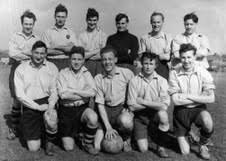
The Fabled Jersey Gingers
Derek finished his egg and wiped his chin. From a dusty sideboard he retrieved a small battered cardboard box. Alongside the forgotten detritus of everyday life including fingers, pens, a glass case with no glasses and aging Christmas cards, lay a Match Day programme dated June 6th 1943. A game played between his beloved Jersey Gingers and the crack Hungarian outfit Lepidan FCSS at the famous Stades de Colombes in Paris.
It was the final of the Sportsmanship and Athleticism Amongst Aryan Occupied Nations Cup. Perhaps the most notorious football match in history.
As he flicked through the browned pages, muttering to himself of memories lost, I could sense he was once again running out at the Stadium in front of nearly thirty thousand French spectators.
“Nobody expected us to win. Hitler himself had given direct orders that Lepidan must win. That explains the use of Half Track and 88mm Howitzer up front. But they reckoned without us Gingers.”- His aged back stiffened with pride and he looked into me. “Mind you that 88mm had a hell of a shot on him.”
The Programme listed the Gingers team that day as;
Square Root (GK)
Pear Tree Fennel
Moat Dribble Pasty Drain Parsley
Dickins Tongue
“We were a match for anybody. Even the mighty Arsenal or Sunderland would have struggled to come to terms with us. Hughie Tongue. What a player. Ex Third Lanark, four foot two but feet like a cobbler’s hammer. Lovely lad too, always a smile on his tooth. Jeff Drain, strong as a dose of dysentery and as nimble as TB. Tackle, head, shoot. He had it all and he made his own clothes. Nat “Crafty” Parsley, nippy, tricky and ironic all in one stride. Sheridan Square Root in goal, proper Toff he was. Could speak Spanish you know. His wife Maude used the goal net at night to keep her perm tight. Big girl she was. Only me and Harry Moat left now. And Julio Emphysema. He was from Spain. He could speak Spanish as well.”
-
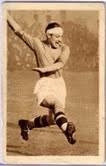
Hughie Tongue
In June 1940 the Channel Islands were occupied by the evil Nazi empire. Life on the Islands, soon became a harsh regime of spiteful labor and daily hunger as the Islanders came to terms with evil Nazism.
Food was in such short supply that some Islanders forgot how to chew.
The Gingers were the leading football team on the Channel Islands. In the pre-war years, now seen as a golden period in Island football, they had edged out their fiercest rivals The Jersey Royals in league and challenge cup competitions. This should come as no great surprise as the Royals were a team made up exclusively of potatoes and a knob or two of butter. Lovely in a salad.
- The Gingers had turned their ground in Holter Street, Saint Peter, known lovingly as The Plague Pit on account of an earlier use, into what we call today a Fortress.
-
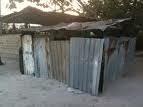
The Plague Pit
Such was their dominance that there was talk of the Gingers joining the French League, “French fancy dans we called ‘em, all flicks and shrugs and improvised modern dance when a goal was scored. Not our sort at all. Proper la-di-da.” commented Pasty tartly.
“We really thought that we were in with a chance of joining England’s Division 3 South in 1939. Lyme Regis Bucolics had left the Football League due to a rickets outbreak in their squad. But as with so many things at the time the war put a stop to any of those ideas.”
The Gingers (so named because of their kit of orange shirts to humor the Club’s founder Johann De Kuyper an eccentric wool merchant from The Hague) took part in various inter-island knock out competitions and dominated with a wilful, wistful ease. “It helped that we were the only team with goal posts, although the nets were stolen by Maude. The posts bamboozled a lot of our opponents and no mistake.”
The dominance of the Gingers owed much to the quality of their players but also for the tactics they adopted. Known as “Boot and Chop” the Ginger’s game plan was simple.
Kick the opposition in the testicles at every available opportunity and bribe others with the promise of pork chops from Percy Dribble’s butcher’s. These tactics led to a record in the 1940/41 Season of;
P. 24 W.24 L.0 Goals for 46 Goals against 3 Pts 48
The most successful league campaign by any team on the British Isles ever.
Pasty remains a staunch defender of his team’s abilities “If the war hadn’t come I am convinced that we could have played in the league. Numerous scouts caught the ferry from Weymouth to watch us play. Everton, Wolverhampton, they all came to see the boys play. If only…..”
Such success inevitably drew the notice of other, darker forces.
The Sportsmanship and Athleticism Amongst Aryan Occupied Nations Cup has a dark history. Borne out the evil mind of evil Doctor Goebbels assistant Herman Beckanbauer as a means of displaying unity amongst the Greater Reich, the cup gained traction amongst the upper echelons of Nazi High Command. Teams were selected from each of the occupied lands and a simple knock out cup plan was determined on the strict proviso the Lepidan FCSS won.
-
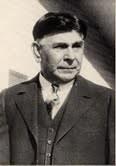
Pocket – Hero or Villain?
The entry of the Gingers was first mooted by Major Fritz Dumpkoff, Camp commandant of one of Jersey’s Stalags, stamp collector and inspiration for haughty German officers in war films. Dumpkoff, in his time a tricky left winger (a term banned in the Third Reich to be replaced with the word Aussenaussenderscneiderbooter – which translates as “wide player not on the right but on the opposite side of the pitch”) took to watching the Gingers home matches and became a firm supporter. He even penned a club song.
“When our jackboots stamped upon your throats
With our knives piercing your guts
Little did we know that now
You Gingers are our boys!”
It was Dumpkoff who approached Gingers coach, Stan Pocket, an avuncular abattoir owner, after the perennial mauling of Sark Casuals 7 – 0 in November 1942.
“He was a very tall man if I recall. Cocksure. I remember him watching us wash in the showers, a leer on his face. He turned to Stan and whispered something in his ear. Stan looked a little taken aback, he always did when you asked him something, but then a smile spread over his lips. He laughed out loud and then shook the Major’s clawed hand saying, “I will see what I can do Major”. They walked out together with Dumpkoff occasionally peering over his shoulder at us as we dried ourselves down on the nice towels he had provided us with.”
It was only at Pocket’s trial at Weymouth Assizes in 1947 that the full extent of the plan they hatched was revealed. In return for entering the Gingers in the Cup, Pocket would be allowed to smuggle as much contraband as he could find on his travels with Dumpkoff receiving a cut. During the cup run, an amazing treasure trove was smuggled by Pocket and his cronies into the Island. Meat, vegetables, bread, milk, nail clippers, jumpers, cod, clogs, tortoises and thousands of mirrors all sold on the island’s thriving black economy to desperate people starved of essential foodstuffs and a touch of vanity.
“We never knew about this plan,” argues Pasty, “All we wanted to do was represent the Island and show that we could play football with the best.” He refused to answer questions about the thirty or so mirrors that adorned his hallway.
Older islanders remain tight lipped about this time and it does appear that much of Pocket’s smuggling was aimed at placating opposition to his team’s forays into occupied Europe. “It is amazing what people will do for a piece of liver,” said Pasty.
The Ginger’s campaign began with a 2-0 victory (goals from Tongue and Dribble) over Eindhoven Quisling at the Plague Pit one bitter January afternoon.
This was followed by a hard fought away victory at Oslo 5th Column Wednesday by a single goal (scored by the prolific Tongue) in icy conditions. That winter saw the people of Jersey dressed in the finest woolen jumpers and also gorging themselves on salted cod from Norway’s verdant fishing grounds. Although those that had forgotten how to chew gleaned less satisfaction from the cod.
It was now March, daffodils spawned a shimmering golden carpet throughout the Island. The island folk awoke to the possibility of sporting glory visiting them.
The 3rd round beckoned and the draw pitted the Gingers against the reigning cup holders Brussels Blue Shirts, the legendary Flying Flem. The Flem were arguably the greatest pre-war team in Europe and boasted a full array of internationals in their team. They were bankrolled by the Belgian Government’s ill gotten gains from the Congo and could count on Belgian Royalty amongst their legion of fans.
- Nobody gave the Gingers much hope, after all the Flem boasted a front line of Maginot, Verdun and they quicksilver winger Franco (a naturalised Belgian of Spanish descent.) whose dancing feet earned him the nickname of The Cantilevered Catalan.
“We knew we had little chance. Pocket introduced a tactical variation to Boot and Chop. The Salient. Basically get round the back of Maginot and Verdun and we would neutralise their attacking prowess. Stan was adopting the Belgian’s own offensive tactics and using it against them!”
Tongue again scored, rifling home Parsley’s through pass in the 41st minute and then a fearless rear guard action led by Tree and Fennel limited the opportunities for the crafty Belgians. Then at Pocket’s signal, the team completely switched formation – attackers became defenders and vice versa . Thus the Gingers managed to get behind the Maginot Line for the remainder of the game with victory sealed by Tree’s injury time winner after a dazzling dribble and cross by Pear.
The Gingers had made the Semi-finals due to arguably the most significant innovation in football since the advent of the bladder in the ball.
“We knew we could win. Had faith in ourselves and in Tom’s tactical nous. The trip home was a joy. Lot’s of beer. And combs! When we arrived home there were crowds on the jetty to meet our fishing smack. We were carried shoulder high through the streets of St Peter to Mr Pocket’s abattoir. There was a right to-do that evening!”
-
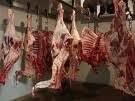
Pocket’s Abattoir Today
“Remarkable man Mr Pocket,” recalls Pasty, “Evil, corrupt, drank liniment for fun and chased every woman on the island. But he loved football and that made everything he did, however evil, justifiable in his eyes.”
A Slaughterhouse man from Jersey had invented the game’s greatest defensive structure, yet Pocket never received recognition for his achievements. In his only interview about those times he told the Leicester Mercury in 1956 “It is all about football. Just the game. It brings Joy, Happiness and the ability for limitless personal gain.”
Pocket died in 1966 the day before England, using a variation on his tactics, won the World Cup. The bribery of officials at the Final would have brought a smile to his face.
With the people of the Island now behind them the Gingers easily swept aside the Sudetenland Anschluss 2-0 at the Plague Pit (Tongue again among the scorers). Pasty recalls the game as a “drab, dull affair only enlightened by Square Root’s penalty save in the 75th minute from Anschluss’ star player Jiri Jawa.
A miracle had occurred. The Gingers had reached the final.
-
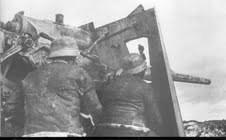
Howitzer – The German Centre Forward
June 6th 1943. Stade de Colombes Paris. The Jersey Gingers versus the mighty Lepidan FCSS. Lepidan had swept all before them in the previous rounds with ruthless Teutonic efficiency. “We didn’t have a chance really. It was a complete mismatch. They had the best players in the world at the time and if they didn’t win, then their tactics were simple. Invade.”
Indeed if we look at the Lepidan team that took the field in Paris that day we can see what Pasty means.
Scharnhorst (GK)
Arbeit Macht Frei
Stuka Graf-Spee Luther Siemens Nietsche
Howitzer Half-Track
Despite protests from Pocket before the match, Howitzer was allowed to play, “Lack of mobility but what a shot, even from twelve miles,” Pasty recalls, “Graf Spee scuttling in the middle, a proper pocket battleship of a player and the sublime Siemens supplied the ammunition for the front pair. Stuka’s aerial threat. They were an awesome team. Unbeatable in most people’s eyes.”
Except for one man. Pocket. “Stan told us before the game that we could win. We had to win. For Jersey and for ourselves. No matter what history would write about us we had a moment in which to live free of oppression and the right to call ourselves free men. Holler to the world that Jersey Gingers would never bend to the jackboot of tyranny!”
It later transpired that Pocket also secured several tons of onions and two hundred pairs of socks to smuggle back to Jersey and needed the adulation on the pier to affect his dastardly plan.
-
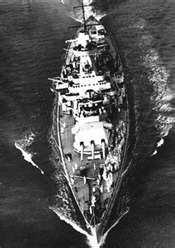
Graf Spee – The German Pocket Battleship Midfielder
The game itself was a minor miracle. The Bulgarian referee Marko Payov, a man with pederast tendencies, had been instructed by the evil Nazi’s to make sure Lepidan won. But subtly. For the first 20 minutes he allowed a barbaric assault on the Gingers attacking players by the notorious defensive line of Arbeit, Macht and Frei. Tongue lost the use of his left leg after one particularly sickening aerial assault from Stuka and there were fears that the Gingers may not have been able to complete the game.
But a strange thing happened. After twenty five minutes, a white dove appeared over the ground. The sun’s rays dappled its plumage and it fluttered over the prone Tongue as he received treatment for a head wound after an off the ball clash with Graf Spee. Was it a sign? From God?
No. But it proved to be pivotal.
Pierre Bossu was a six year old boy at the time and had been given time off from his slave duties to attend the match and cheer on Lepidan. Now a successful orthodontist, Pierre recalls the moment, “The dove. Beautiful. It filled our hearts with joy and hope. These poor lads being pounded by the Germans. But they wouldn’t give up. They kept getting up and playing. And the more it went on, the more our hearts, previously cold to them, reached out and embraced them as our own. They were fighting for us.”
It was a low murmur at first. From the popular end I recall “Allez Les Rouge” but it spread like a winter cold virus around the ground until we were all chanting as one “Allez Les Rouge, Allez Les Rouge!” 30,000 of us for the first time in years free to express ourselves in our beloved land.”
We return to the Acetate recording, “Punted out by Square Root…..picked up by Nietzsche …..He is tackled by Pasty. Through to Drain. Parsley. He’s running now, dummies Frei…To Tongue. He’s scored! Tongue has scored! One to nothing the Gingers! By Jove!”
One to nothing at half time.
Howitzer levelled after 56 minutes with a speculative shot from three miles.
Lepidan laid siege to the Gingers goal for the next 20 minutes.
Pasty continued,“Wave after wave of attack, relentless stuff. Graf Spee was controlling the center and they pushed Panzer into attack. God knows how we hung on. And then the moment that changed our lives.
We return to the Acetate recording;
“Marvellous clearance by Square Root there, by Jove he is playing well. But it is picked up by Siemens – on to Half Track on the right. He crosses diagonally. Mistake by Pear. The ball just bobbled over his foot. Oh No! Howitzer is in on goal – Root is out to meet him. Sweet Lord Above. The ball has crossed the line. No, no wait a moment that is not the ball….. it is Square Root’s head! The ball has gone out for a corner! Square Root has lost his head but kept the Gingers in the game. Good lad.”
Was this the single greatest act of bravery ever witnessed on the field of dreams? Pasty certainly thinks so, “Howitzer was in, Rooty threw himself at the barrel and his head came clean off. That was his speciality, unorthodox saves. That one certainly was. I saved his cap as a souvenir. It had his ear in it.”
Call it fate or sublime good luck, but Sheridan Square Root’s sacrifice for his team mates changed the nature of the game. As Root’s torso was carried from the pitch, an even mightier roar of “Allez Les Rouge” rolled around the ground.
Pasty went in goals. The Gingers began to play like men possessed. Power, passion and no little skill filled their legs and hearts. The dove returned and played out the remaining minutes of the match as a makeshift midfield player (with minimal effect it must be said). And then that moment in the 88th minute.
“Dribble is away! He flies down the wing, beats one, beats two – he looks up! Tongue IS FREE! Tongue IS FREE! He must score – Tongue has scored! Tongue has scored! Mercy Me! The Gingers have won the Cup. The Gingers have won the Cup!”
-
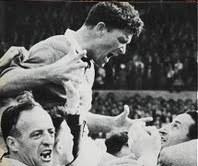
Cup Winners!
There was no crowd on the dock to meet them when they returned from Paris the following day. No adulation from the people of Jersey. Dumpkoff left the Island the following morning and official German war records note his death during the Battle for Berlin in 1945. Inside his tunic was found a fluffy towel.
A number of the Gingers were arrested and deported to labor camps across Europe. Among them the star of the team, Hughie Tongue whose goals and impish Scottish jinkery had done so much to carry his team-mates to glory. He was never heard of again. Fennel and Pear escaped to England and joined the war, both dying on the beaches of Normandy exactly a year after the final. Jeff Drain developed a successful career as a painter and decorator.
And as for Pasty? He married Maude in the spring of 1946. Her wedding dress was made from the original nets the Gingers had used in their goals. They remain a devoted couple. Square Root’s ear was best man.
Pasty was asleep when I left his house, chomping on a bread soldier he had left. The spread was a cheap brand of margarine which I found lacked taste. I felt a pang of regret that his extraordinary story had lain hidden for so long, like sediment at the bottom of a still, dead lake.
Those names Square Root, Tongue, Parsley et al all deserve to be remembered as more than Collaborators. For the Jersey Gingers pulled off one of the greatest victories in the history of football. And they dared to hope. And for that their achievements should never fade.








